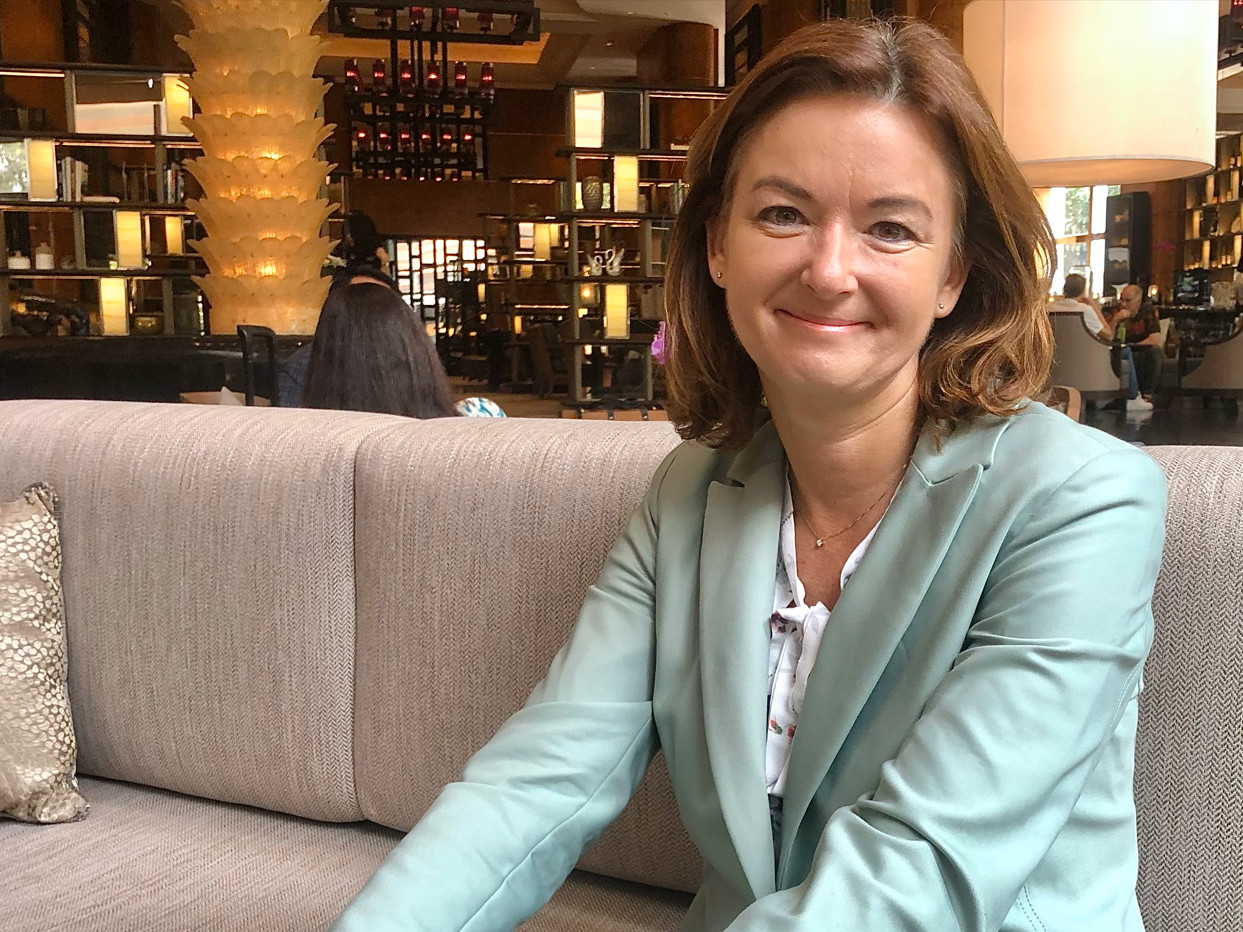Consistency in global policy needed amid divided world, Slovenian FM says
The Jakarta Post sat down with Slovenian Deputy Prime Minister and Foreign Minister Tanja Fajon during her first visit to Indonesia last month.
Change text size
Gift Premium Articles
to Anyone

I
n her first state visit to Indonesia last month, Slovenian Deputy Prime Minister and Foreign Minister Tanja Fajon met with Foreign Minister Retno LP Marsudi and ASEAN Secretary-General Kim Kao Hourn. The visit, which saw Jakarta and Ljubljana expand their cooperation across various sectors, coincided with Slovenia’s bid for a non-permanent seat at the United Nations Security Council. The Jakarta Post’s Yvette Tanamal recently sat down with Minister Fajon to talk about her Southeast Asia visit, the role of smaller powers in diplomacy and how Russia’s invasion in Ukraine has affected the Central European and Balkans region. The following are excerpts from the interview:
Question: What can you share about your meeting with Minister Retno, and how will a stronger Indonesia-Slovenia relationship benefit both countries?
Answer: Slovenia is a small country, but it is a very green country with a clean environment and a strong focus on renewable technology. We also have the Port of Koper, which is the most modern Adriatic port and is a fantastic access [point] for Europe’s central and eastern regions. It’s the shortest way to enter the European market and it abides by a very high standard of environmental protection.
These are all opportunities to work together, not only in areas like tourism, but also through education and youth programs. Minister Retno pointed out that we already have some exchange of students among our universities, but we agreed that we want to expand these bilateral programs and to increase the numbers for trade and investment.
Indonesia is a fast-growing country, and is a very important partner in the region. It is also the leader of ASEAN. For Slovenia, which is on the other side of the globe, it is very important to have like-minded partners that are focused on preserving peace and stability.
You also met with the secretary-general of ASEAN. Why does ASEAN matter for Slovenia, and what can smaller countries contribute to world stability?
Southeast Asia is growing and we need partners that are committed to, on one hand boosting the economy and cooperation, and on the other hand are committed to multilateralism and dialogue, preserving world rules and the international law and to embark in conflict-resolution in a non-escalatory way.
On the European continent, we are currently affected by the war in Ukraine. The consequences are affecting countries globally with things including energy prices and food insecurity. It’s very important that we strengthen the partnership between the European Union, which we belong to, and the Indo-Pacific. The stability and economic growth of the Indo-Pacific is beneficial for everyone.
We are all affected by geopolitical events. Minister Retno has already said some things about how the big players are posing some challenges in the region. These are all dangerous, and we have to stand together.
Minister Retno said Slovenia is Indonesia’s largest trading partner in the Balkans, which is a politically dynamic region. How have recent geopolitical developments impacted the region, and what is Slovenia’s strategy?
Slovenia, being part of Central East Europe, has a good economic outlook after the COVID-19 crisis, and despite the war in Ukraine, we are looking toward 5.5 percent growth. In comparison with the regions of the Western Balkans, we are definitely very much more advanced.
But it is true, we have a very fragile region in the Western Balkans, where there are still many unresolved conflicts on top of the fact that they are not part of the EU and the European Common Market. These regions were heavily conflicted by the war, and there is still a lot of economic and political instability.
We try to support these countries with their reforms, and to bring them as soon as possible to the European Common Market to open the borders.
What do you hope to achieve through Slovenia’s UN Security Council bid?
“Building Trust, Securing the Future” is the motto for our campaign. Building bridges of confidence is very much needed today. We were part of the bloody wars in our history. We know what it means.
For example, the UN security agenda is burdened by issues in Africa, and they are discussing these issues without Africa at the table. It’s very much divided, polarized; even the war in Ukraine has drifted Europe away from the Global South and the rest of the world.
I see a big risk in the world becoming more polarized. There is this feeling that the big powers, big corporations and big economies are running the rules of the game. This is why it’s important to build confidence and to continue having consistency in our international law. We have to respect the law, because without it, there will be nothing left.
Like Minister Retno said, if we are consistent about resolving a conflict, we have to be equally consistent in resolving other conflicts even when they’re not within our direct vicinity. I’m very interested in the developments of Southeast Asia, the worrying situation in Myanmar, just as I’m interested in Palestine. Consistency is very important in foreign policy.









